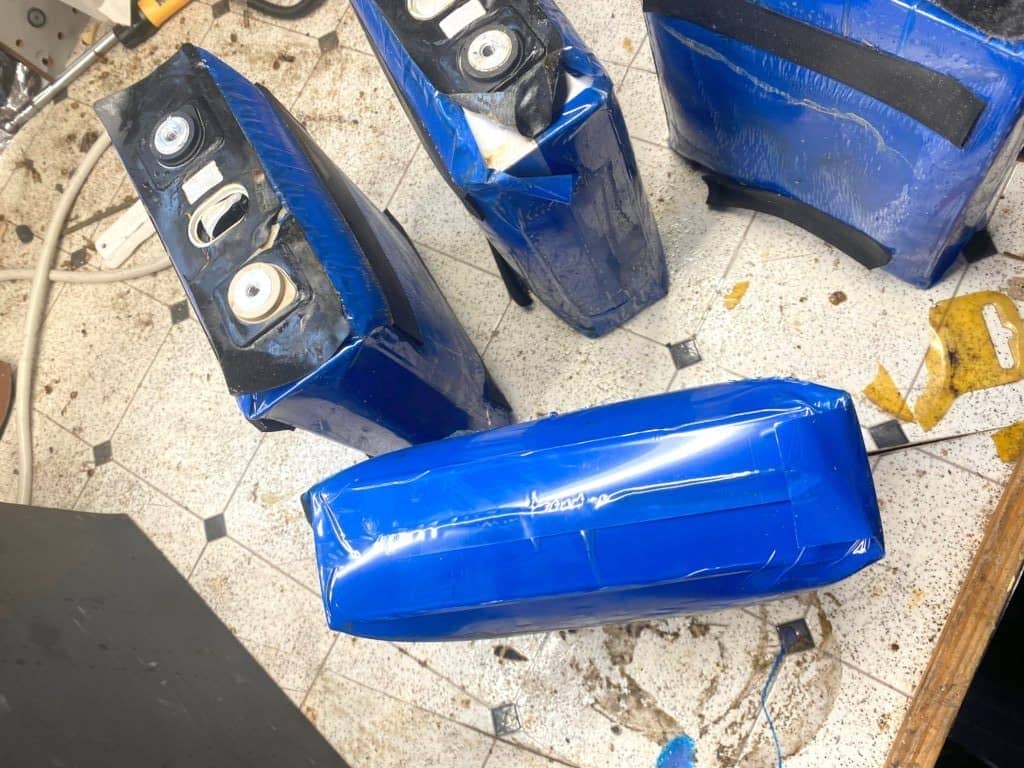Blog
Understanding and Preventing Swollen LiFePO4 Batteries
2025-07-08 | Eric

Swollen LiFePO4 batteries are a clear sign that something is wrong with your battery. These batteries can puff up to twice their original size, which can be dangerous. This swelling is usually caused by an internal buildup of heat and gas, and it's a warning that your battery is under stress. In this article, we’ll discuss the causes of swollen LiFePO4 batteries and most importantly, how to prevent them to ensure your battery lasts longer and stays safe.
What Causes LiFePO4 Batteries to Swell?
Several factors can cause swelling in LiFePO4 batteries. Understanding these causes is crucial for both prevention and safe usage.
1. Overcharging: The Leading Cause
Overcharging occurs when the battery continues to charge after it has reached its maximum voltage. This forces all the lithium atoms in the positive electrode material to move into the negative electrode material. As a result, the positive electrode loses lithium, and the negative electrode accumulates more. This imbalance leads to battery bulging. To prevent this, always use a quality charger with a built-in safety mechanism to stop charging once the battery is full.
2. Over-Discharge: Draining the Battery Too Low
When a LiFePO4 battery is discharged too far, the passivation layer that protects the negative electrode material can break down. This damage compromises the internal structure of the battery, causing swelling. To avoid this, it’s essential not to drain the battery below the manufacturer’s recommended voltage.
3. Manufacturing Defects
Sometimes, swelling is simply due to manufacturing flaws. If the electrode layers are uneven or the production process was rushed or poorly executed, the battery may be prone to swelling. This is why it's crucial to choose high-quality, reputable brands for your batteries.
4. Long-Term Storage: A Silent Killer
If a LiFePO4 battery sits unused for too long, it can begin to swell. The battery might suffer from a chronic short circuit due to the degradation of materials inside the battery. To prevent this, store your batteries in a cool, dry place and keep them partially charged (usually around 40-60% capacity) if you don’t plan to use them for a while.
Can Swollen LiFePO4 Batteries Be Replaced?
Yes, swollen LiFePO4 batteries can be replaced, but it depends on the situation. There are two types of battery swelling:
- Reversible Swelling: This is a temporary deformation due to changes in the materials within the battery. This typically happens during normal charging and discharging cycles.
- Irreversible Swelling: This occurs when gas builds up inside the battery due to overcharging, deep discharging, or excessive heat. This kind of swelling is dangerous, and the battery must be replaced immediately. If the battery starts leaking gas or showing signs of severe swelling, it should not be used.
In some cases, mildly swollen batteries can be rebalanced or compressed to reduce swelling. However, heavy swelling is a sign of significant internal damage, and the only safe option is replacement.
How to Prevent Swollen LiFePO4 Batteries
To avoid the issue of swollen batteries, it’s crucial to follow proper usage and maintenance guidelines:
- Avoid Overcharging and Over-Discharging: Ensure the battery never charges beyond its capacity and never discharges too low. Using a battery management system (BMS) can help protect the battery from these extremes.
- Regular Battery Maintenance: Check the battery terminals for signs of corrosion or oxidation. Clean the terminals periodically to ensure good conductivity, which will help maintain the battery’s performance.
- Choose Quality Brands: While it may be tempting to buy cheaper batteries, high-quality LiFePO4 batteries from reputable brands are much less likely to experience swelling. Always opt for batteries from trusted suppliers to ensure safety and reliability.
- Proper Storage: If you don’t need to use the battery for a while, store it in a cool, dry place with a charge of around 40-60%. This will help maintain the integrity of the internal materials and prevent swelling.
Conclusion: Keep Your LiFePO4 Batteries Safe and Reliable
Swollen LiFePO4 batteries are often a sign of misuse or inherent defects. To prevent this from happening, always follow the manufacturer’s guidelines for charging and discharging, maintain your batteries properly, and invest in high-quality products from reputable suppliers. By doing so, you’ll extend the life of your battery and ensure it remains safe to use.
Final Tips
- Keep your batteries within the recommended voltage range.
- Never ignore the swelling – it’s a serious sign that something is wrong.
- Store your battery properly if you’re not using it for a long time.
Popular Articles
Contact Details
Worktime :Monday to Friday 9am - 6pm (HKT)
WhatsApp/Wechat/Mobile :+86XXXXX
Email : info@lifepo4cellstore.com
